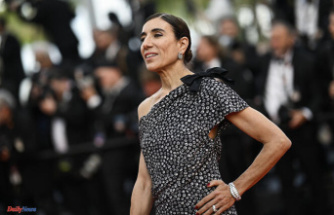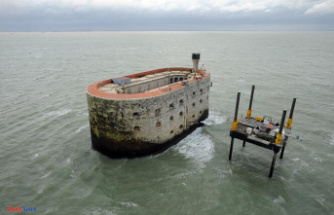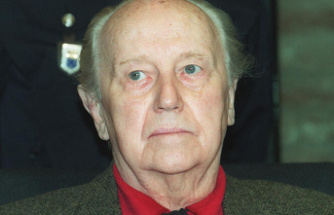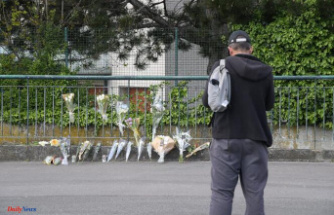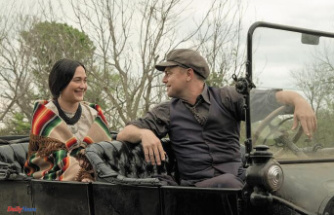Fatemah Reshad, the 4-month-old Iranian infant who came to Portland for heart surgery after initially being banned by President Donald Trump's immigration ban, is "doing well" following the procedure, doctors from OHSU Doernbecher Children's Hospital said at a press conference Monday.
Fatemah was born with congenital heart disease, a rare illness that affects roughly two out of every 10,000 children. Without surgery, doctors said, she likely would have died.
The surgery, performed Friday, was a complete success, said Laurie Armsby, interim head of the hospital's Division of Pediatric Cardiology.
"Her heart function looks beautiful," Armsby said. "We're very pleased with how she is recovering."
Fatemah's parents were scheduled to fly from Tehran to Dubai earlier this month, said her uncle, Sam Taghizadeh, who lives in Portland with the young girl's grandparents, all three of whom are U.S citizens. He had helped the family fill out a tourist visa application and set up an appointment with the U.S. Embassy in the United Arab Emirates.
The travel ban had gone into effect the previous day, however.
"I got the email and everything was canceled," Taghizadeh said. "I was in shock."
The family was told they would have to wait for the ban to expire, 90 days away, and reapply for the visa. Fatemah's condition is the kind that worsens with time, however, and Taghizadeh was worried that she might be able to wait.
In a normal heart, blood pumps to the body and returns to the heart, Armsby explained at a previous press conference, then is pumped into the lungs where it picks up oxygen before again returning to the heart. In Fatemah's heart, blood was flowing from the body into the heart, but instead of flowing into the lungs, it pumped back into the body without the oxygen the lungs are meant to provide.
Under normal circumstances, the heart circulates blood in a series -- heart to body to heart to lungs and back to body -- but Fatemah's heart worked more like two parallel circulations, with one circulating blood in the body and another in the lungs, but without the two ever intermingling.
Her parents asked that doctors not go into detail about the particulars of her operation, but Armsby relayed a short message from them.
"They want it known that she is doing well," Armsby said.
As her story gained more and more publicity, some prominent figures began advocating for the family. Sen. Jeff Merkley assigned a caseworker from his office and drafted a letter from the entire Oregon delegation to the heads of both the State Department and the Department of Homeland Security asking for an exception to the travel ban.
On the other side of the country, New York Gov. Andrew Cuomo was working with attorneys in his state to arrange for the family to travel there. All the while, a team of immigration lawyers were working behind the scenes to try to get the young girl the treatment she needed.
Eventually, a special waiver was granted. At Monday's press conference, Taghizadeh, known affectionately as "Uncle Sam," was overcome with gratitude, thanking a long list of people and acknowledging the outpouring of support for his family.
"In the beginning, I didn't have any hope of my family coming here," Taghizedah said. "I was surprised how the people in the U.S. helped. It was amazing. English is my second language for me and I couldn't find the words to say thank you."
He went on to say that, though his faith in this country was shaken by the ordeal, the outcome reaffirmed it.
"I lost my hope In the beginning. I thought 'Who is going to help us?'" he said. "But it was a miracle, every single person who tried to help. In one word, it was just a miracle."
Taghizadeh said Fatemah's parents were even taken aback by the outpouring of support. "They couldn't believe it," he said.
Jennifer Morrissey, one of the lawyers who worked behind the scenes on getting Fatemah and her family to the U.S., said that support may be necessary in the future, especially as the President's administration seeks to implement a revamped version of the travel ban.
"Fatemah's case was one of generosity and compassion on a great number of individuals," she said. "I hope that we'll see other cases of that kind of compassionate concern moving forward in the times to come in the immigration realm."
-- Kale Williams
kwilliams@oregonian.com
503-294-4048
@sfkale
Our editors found this article on this site using Google and regenerated it for our readers.


